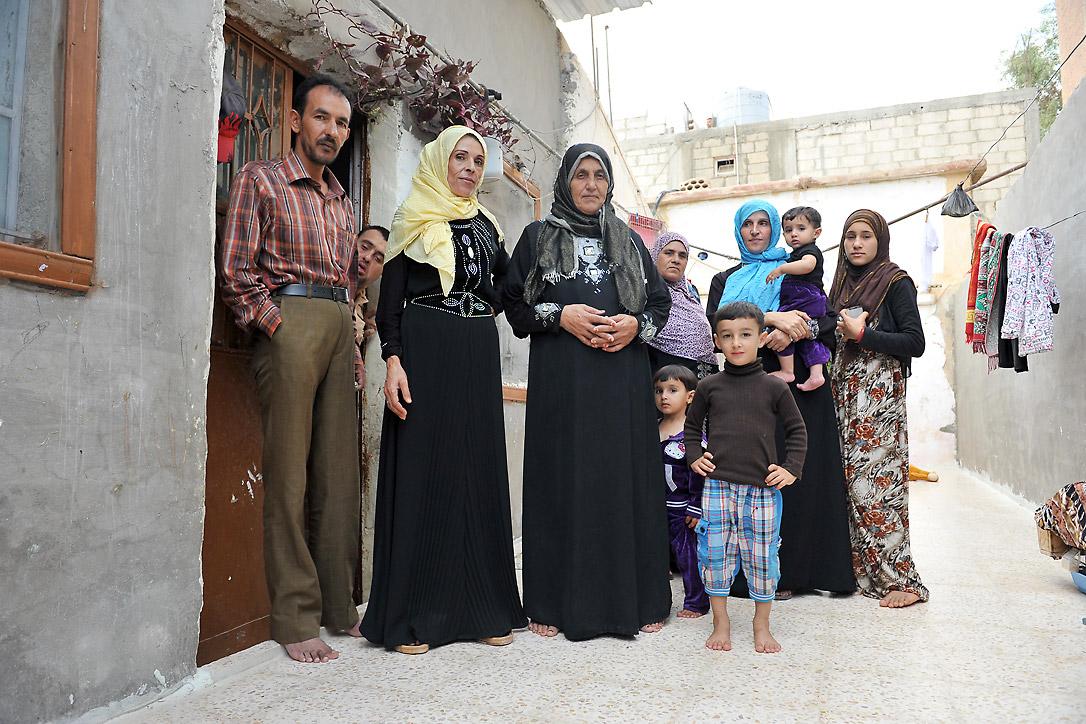Conditions for Syrian refugees worsen

A Syrian family living in an unfinished building in Al Mafraq. Many refugees have to trade their food vouchers to pay the rent. Photo: LWF/ M. Renaux
(LWI) – Lack of education, protection, and assistance with livelihoods are the most pressing needs of Syrian refugees. This is the finding of a call to action by The Lutheran World Federation (LWF) and 41 humanitarian organizations who are assisting refugees from Syria. In an NGO Position paper they are calling upon donors to put extra funding into these areas.
“Warring parties continue to violate UN Security Council resolutions and international humanitarian law by deliberately and wantonly attacking civilians and civilian infrastructure, including homes, markets, schools and hospitals” the initial statement of the paper paper reads.
Exploitation, child marriage and return to the war zone
The paper has been published to coincide with Supporting Syria and the region conference on 4 February in London. The London conference also takes place between the first and second round of Syria peace talks in Geneva. The conference, co-hosted by the UK, Germany, Kuwait, Norway and the United Nations, aims to bring together world leaders from around the globe, non-governmental organizations (NGOs), the private sector and civil society organizations to raise money for Syrian refugees, improve the assistance to victims of the civil war in country and create education and job opportunities for those sheltered in countries outside Syria.
In clear terms, the paper points out the situation of the refugees in the fifth year of conflict, and the associated humanitarian catastrophe. Having exhausted their financial reserves, a lack of funding forces refugees to “accept exploitative work, driving impoverished parents to send their children into exploitative child labor, forcing desperate women and girls into survival sex and early marriage, and leading men, women and children to return to Syria, or try to reach Europe through informal channels, at great risk to their lives,” the position paper explains.
Responsibility of hosts
The 42 NGOs call upon host countries to reform visa and asylum procedures, increase refugees' access to education and lift employment restrictions, to enable them to “benefit themselves and those who have welcomed them”.
It draws special attention to the protection and the needs of vulnerable groups, such as elderly, people with disabilities, women and children. It also lists protection concerns to male children and young men, such as forced conscription, particular threats to their safety, and the greater likelihood of being refused asylum and resettlement.
The LWF is supporting Syrian refugees in Jordan who are living in Za’atari camp, the surrounding host community in Al Mafraq, as well as in other cities such as Amman with food, relief goods, shelter, water and sanitation and psychosocial care.
“LWF Jordan is in the process of launching two four-year projects that aim to improve learning environments for refugees and vulnerable Jordanians in primary and secondary education,” Caroline Tveoy, LWF Program Officer for Jordan, says. “While we commend the host government for enabling access to education for the more than 650,000 registered refugees in the country, we call for more to be done to open up opportunities for vocational training, employment of refugees in income generation schemes and formalization of the position of refugees currently working on an illegal basis.”



